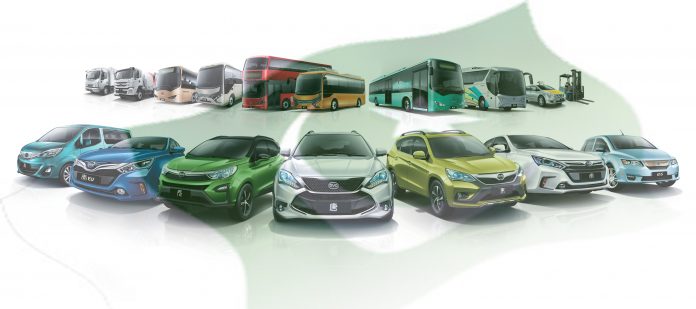The electric vehicle policy that was proposed by the Ministry of Climate to the Cabinet Division has been rejected while the cabinet division has formed a 12 member council that consists of members from both the Ministry of Climate Change and Ministry of Industries and Production.
When Prime Mister was charring the first meeting of the Committee on Climate Change, he was presented a comprehensive and detailed briefing on researches made on environment-friendly impacts and economic benefits of electric cars. After that, the Prime Minister gave directions to form a policy and mechanism for adopting electric-cars within 15 days.
Following the events, during a news conference, four months ago advisor to the Prime Minister on Climate Change Malik Amin Aslam said that 30 percent of the vehicle system in the country will be converted to electric cars by the year 2030. He further added that the change would help reduce oil imports and also make the environment better.
After that during a news conference, Advisor to Prime Minister Malik Amin Aslam claimed that the ministry of Climate Change is ready to present Electric Vehicle Policy in the next cabinet meeting. He mentioned that an electric vehicle policy has been formulated which is set to give a new direction to the transport sector. He said the policy will be presented before the next cabinet meeting for approval.
He added that a special economic zone will be established where electric rickshaws, cars, and buses will be manufactured. This will also create immense job opportunities for youth.
Well-placed sources told print media that after the announcement of Malik Amin Aslam’s decision regarding approval of Electric Vehicle Policy, Ministry of Industries and Production wrote a letter to the Ministry of Climate Change and said the preparation of electric vehicles is not the jurisdiction of Climate Change ministry.
Finally to end the row the Cabinet division stepped to end the row between the ministries over formulating electric vehicle policy.
The Cabinet Division pointed out that under schedule – 11 to the Rules of Business, the federal government functions; ‘National Industrial Planning and Coordination’ and ‘Industrial Policy’ are allocated to the Ministry of Industries and Production. The allocated business of the Ministry Of Climate Change does not relate to the formulation of an industry-related policy.
With consultation from the cabinet, it was then decided on 21st August 2019 that even though the Climate Change Ministry doesn’t have the function to develop any industry-related policy and it strictly falls under the ‘Industry and Production’ division. However, it was said that in this case, Climate Change ministry has advancement in formulating an E-Vehicle Policy hence the industrial ministry should consult the Climate Change ministry and also with their advice ensure that it meets the necessary Industrial Environmental Standards.
On 5th September a committee constituting of Additional secretary-II of Industries and Production was appointed the chairman other members include Joint Secretary of Industries and Production, Representative of commerce, Representative from Climate Change, Representative of Federal Board Revenue, Representative from the board of investment, Chief Executive officer of Engineering development, Engr. Asim Ayaz from Engineering board revenue, Assistant Chief of Industries and Production and Shafqat Abbas of Industries and Production. Further, it was said that the secretariat of Electrical Vehicle Policy formation would be EBD.
Following the next series of events the advisor to PM on commerce issues, Abdul Razzaq Dawood, held a meeting with advisor of PM on Climate Change Malik Amin in which it was decided that the Ministry of Industries and Production will formulate a comprehensive E-vehicle policy that addresses environmental issues and also promotes healthy competition in the auto-sector along with viable options for consumers at each price point.
Dawood greatly emphasized the need to control emissions for a healthy environment. He said that the forthcoming policy will be implemented under the broader auspices of the Auto Development Policy (ADP) 2016-21 after consultation with concerned stakeholders. The main agenda of the policy would be to introduce electric vehicles without causing damage to the current local auto-sector and the country’s industrial base.
Aslam, the advisor of Climate change, held a meeting with Indus Motor Company CEO, Ali AsgharJamali and said that the auto policy 2016-21 does not meet the requirements of electric vehicles and therefore a new auto policy would be introduced. The representative of local vehicle manufacturers also met Advisor to PM on Climate Change and convinced him that their business will be affected due to electric vehicles.
They said the Ministry of Climate Change since then has surrendered before the Ministry of Industries and Production and wish not to continue working on Electric Vehicle Policy by the Ministry of Industries and Production.
Talking to press, spokesperson of Ministry of Climate Change, Muhammad Saleem confirmed that the ministry did not present Electric Vehicle Policy before cabinet due to interference of the Ministry of Industries and Production.
He said there is a need to shift on electric vehicles and the ministry of Climate Change wanted to import numbers of electric vehicles in Pakistan initially. He said there is also a need to bring revolution in the transport sector of the country.
But with the current conditions of the economy and the fall in the auto sector, Pakistan isn’t ready for the change as electric cars are more costly. However, if the policy is announced it will be a huge developmental step towards the future.
by Hawwa Fazal / Hanif Memon
